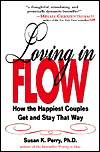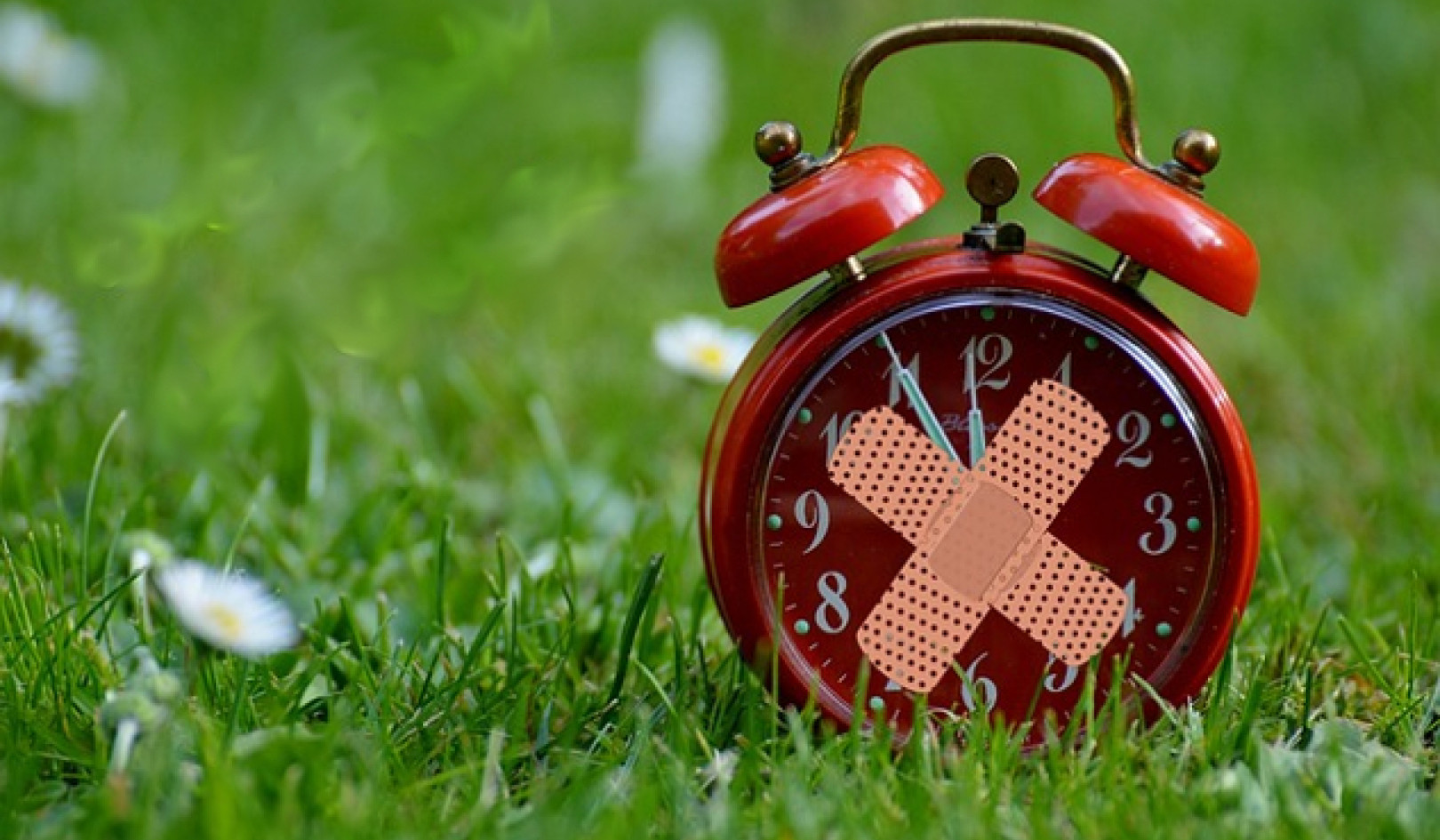
Do the best couples have any secret strategies for staying mindful and not taking one another for granted?
One psychologist wrote that we should try to be as sensitive to small changes in ourselves as we're taught to be with our cars, and as sensitive to tiny cues from others as a mother is to her baby.
John Gottman's research with hundreds of couples in his lab has proven that partners who, when a bid is made for attention, turn toward each other -- rather than ignoring the bid or turning against their mate -- are far more likely to stay together. A bid for attention can be as minimal as a touch on the arm or a comment while reading the newspaper. Paying attention each time your partner reaches out in some tiny way, even if you must say, "Now's not a good time," shows courtesy and caring, and keeps you both current with each other's lives.
Does Attentiveness Get Easier with the Years?
You might think this sort of attentiveness would get easier and more natural with the passing years. Not so. In fact, an unexpected correlation was discovered between how long couples had been married and empathic accuracy -- how correctly they are able to assess the mental and emotional states of their partners on a day-to-day basis. Couples married a shorter time (the average in the group studied was about fifteen years of marriage) tended to be more accurate in their assessments. The less time you've known one another, the more intently you focus on the problems you're discussing. Over many years of marriage, the researchers concluded, "couples become less motivated in resolving disputes, their relationship theories become ossified, and they are more likely to assume that they know what their partners are thinking." So they pay less attention, don't work as hard cognitively, and they miss detecting the cues to their partners' mental states.
Psychiatrist Arnold M. Ludwig writes that his wife claims to know him better than he knows himself, which peeves him since he should be able to know himself best. After all, only he knows his innermost thoughts. The fact is that our mates judge us by our actions and thus find us more predictable than we expect. No matter how purposeful we think we're being, our life mates see the patterns of how we act and begin to see those actions as dispositional traits, as who we are. Ludwig's wife has the advantage of being an observer so that she, like all alert spouses, can act like an experimenter. So it may be accurate that she knows him better. Still, expecting your mate to always read your mind or to do so at any one particular time would leave you frustrated as often as not. Nor is it normally helpful to point out that you know your lover better than he does himself -- even if you're sure you do. Most people like to believe they can still surprise us. And, in truth, we can all still be surprised by what our mate does or thinks, so it's best to remain open to such possibility.
Good Relationships Take Patience & Tolerance
One of the oldest aphorisms is that a good relationship takes hard work. But I don't think work is the correct word. Relationships require patience and tolerance, which become habits, and they take paying attention, which is effortful. A New Yorker cartoon shows a husband watching TV, and at the other end of the room his wife is talking to a friend on the sofa: "Frank and I used to work at our marriage. Now we're retired."
Retiring mentally isn't an option if you want to continue to enter flow together. Ellen J. Langer, psychologist and author of Mindfulness, speaks of how important it is to make the effort to notice. "When the target of our attention varies, it's easy and natural to concentrate and notice details and differences. When we get too used to something, it's much harder to focus on it and see it with fresh eyes. The trick is to keep looking for the new in the old."
The opposite of flow and being present in the moment are distraction and mindlessness. Leading up to my own marriage's lowest period, I once made a comprehensive list of where my time was spent. It showed me my priorities, whether they'd been conscious goals or not. Couple time was at the bottom.
There have been occasions in Barbara Greenspon's long marriage when she's had to shout, literally, for more attention to her needs. When she did that, Tom says, "We would then fight and argue about it, and I would have to think about what Barbara was asking of me. At one point I went to therapy about it." Their marriage eventually developed into a wonderfully rewarding one.
Paying Attention to the Other
Even in passionately loving couples, it's not always easy to focus on what's going on emotionally right now. "The decision to pay attention to someone is the first act of self-limitation, the first sacrifice, the first gift we make in the name of love," writes Sam Keen. That's why it was so distressing -- and so validating! -- when researchers at the Indiana University School of Medicine recently reported what so many women have long suspected, that many men listen with only "half a brain."
Radiologists had twenty men and twenty women, all healthy, listen to a John Grisham novel on tape, while functional magnetic resonance imaging (fMRI) measured high-speed changes in neural blood flow. In the majority of men, only the left side lit up, the half of the brain thought to be most responsible for verbal and logical activity. No credible scientist is claiming to know the full implications of this, though it is easy to speculate that perhaps women listen with more of their minds. To be fair, then, if a male says, "I was listening, dear, but I didn't get that bit," he may be telling the truth. Help him -- and yourself -- by clarifying what you meant.
Even if you miss an emotional cue in the moment, there's always hindsight. Look back -- together -- to figure out what happened between you so as not to make the same mistakes repeatedly. Alert couples don't have to make their parents' mistakes either. As Bob explains, "What made my own parents crazy were the same things over and over. My mother knew which button to push that would piss off my father, and my father knew which button to press to piss off my mother. And they kept using them. Jeanette and I have been very reflective about how the folks around us behaved, and we try hard not to do those things."
THANKS FOR BEING YOU
Ten things I like about Martha. One: Her feet aren't webbed.... Okay, then start over. Martha, my dear, you are: 1. kind; 2. generous; 3. loving; 4. intelligent; 5. honest; 6. sensitive; 7. compassionate; 8. (I got stuck there at eight for a few seconds) beautiful; 9. enthusiastic; 10. hard-working. There. I had finished my assignment. I'd have the whole week to goof off. -- John Dufresne, Love Warps the Mind a Little
What have you noticed that's worth appreciating in your partner? A New York agent in a relationship for two years wryly shared with me her boyfriend's most "romantic" comment to her: "You never get on my nerves." She tried to take the quirky comment in the spirit in which it was offered.
Stephen spoke in a similar spirit the other day, when he described what he thinks my younger son would like in a mate: "What Kevin wants is some of the sparkle you have. It's a bristle-sparkle where each porcupine quill lights up at the end and you admire the beauty as you are being punctured." Rather than feeling offended at the ambivalent compliment, I enjoyed it -- here was someone who is able to appreciate the opposing nuances of my personality.
Expressing Praise & Gratitude
Some people need -- and are grateful for -- appreciative comments from their spouses more than others. Ida, for instance, says that when she and Sam returned home after she gave a brief presentation at a meeting, he told her, "Do you know how beautifully you spoke? I'm proud to be your husband." "That carries you for six months," Ida says.
In some satisfied couples, you don't have to do anything out of the ordinary to get praised. Kaitlin says of her husband Mark: "He's somebody who says, when I make him a sandwich, 'Thank you so much!' I do his laundry, and he says, 'Aren't you the greatest?!' He thanks me for everything. I've always been that way with him also. I'm one of those wives who was always so grateful for what he did out in the world so I could be there for our kids. I'd say, 'Thank you -- it must be so hard facing rush hour every day."'
Margie praises her husband Frank a lot. "I'll compliment Frank about the way he looks and the way he does things that make me feel good." Frank admits he loves hearing such accolades, although he doesn't think about handing them out himself as regularly as he feels Margie would like. "It takes an active effort for me to praise. It's not that it bothers me to do it, but it wasn't done to me in a real sense as a kid, so I had to learn it."
It took time for me to catch on that Stephen enjoys being praised for any effort he makes to please me, even tidying up his own work-related paper piles. I used to think that if I gave in and made a fuss every time he did what he was supposed to do, that he'd become even more insatiable and I'd somehow spend all my energy thanking him. But we all expect to be treated with extra care around those areas in which we're most needy. Whereas I don't care if I'm thanked when I cook a tasty dinner, what I do relish is when my partner stops what he's doing and critiques what I've written. Then I try to remember to be appropriately effusive with my gratitude. When someone who needs praise gets it for pleasing a partner, rather than being taken for granted, he's much more likely to feel secure, loved, and willing to be generous himself more often.
Expressing Appreciation in Unexpected Ways
 Appreciation sometimes plays out in unexpected ways, reminiscent of a chess game played by mail. One afternoon, as I was reading a book by a noted sex therapist, I began to have passing doubts about the excellence of my own relationship, until I got to the part where the author admitted he sometimes isn't nice to his own wife when they're hiking and she lags behind. I thought about how at such times Stephen is always kind and compassionate toward me, a slacker in the recreational arts. I have dramatically slowed him down and derailed entire hikes before the halfway point with my city-bred complaints. I felt a rush of warm feeling toward Stephen. I went to where he was typing and kissed his neck and said, "I love you." He stayed focused on his screen.
Appreciation sometimes plays out in unexpected ways, reminiscent of a chess game played by mail. One afternoon, as I was reading a book by a noted sex therapist, I began to have passing doubts about the excellence of my own relationship, until I got to the part where the author admitted he sometimes isn't nice to his own wife when they're hiking and she lags behind. I thought about how at such times Stephen is always kind and compassionate toward me, a slacker in the recreational arts. I have dramatically slowed him down and derailed entire hikes before the halfway point with my city-bred complaints. I felt a rush of warm feeling toward Stephen. I went to where he was typing and kissed his neck and said, "I love you." He stayed focused on his screen.
About two hours later, he came into the study where I was working on my computer and asked, "What was that for?" I told him briefly -- "You're so nice to me. You're nicer to me than the guy in the book I'm reading who thinks he's such a smarty pants" -- and he laughed delightedly and went off.
The next morning as we left the house to get breakfast, he suddenly looked me in the eyes, kissed me, and said, "1 love you."
Huh? What did I do?
"Yesterday. I was busy when you came to me. But I heard you."
I think, though, that the most welcome type of appreciation -- because it's unexpected -- might be for some aspect of ourselves that less-loving others perceive as a flaw. As Marcel Proust wrote, "Not that the clear perception of certain weaknesses in those we love in any way diminishes our affection for them; rather that affection makes us find those weaknesses charming."
TEN WAYS TO INCREASE MINDFULNESS
1. Schedule time for each other daily. Consider doing no work when you're home together, or at least on weekends: turn off the computer, deliberately switch mental gears and be together. A few focused hours a week can keep you genuinely connected. One recommended routine is to spend a couple of minutes talking just before parting each morning, becoming aware of what's going on in your partner's life that day.
2. Spend both quality and quantity time together. Grabbing a few minutes here and there might not keep your bond as strong as spending lengthier stretches together. Activities like tennis or bridge, taking a class together, or volunteering for the same committee can bring you closer.
3. Each of you sit down and write out, in as much detail as possible, how your partner spent the entire previous day, from waking up to bedtime. Such an exercise is akin to what artists and writers do to enhance their ability to improve memory and fine-tune detail observation. If this is difficult for you the first rime you try it, you may pay more focused attention afterwards.
4. Sam Keen suggests in To Love and Be Loved that you pay meta-attention to what each of you usually notices and typically ignores. That is, talk about whether each of you most attends to things, people, ideas, money, family.
5. Come up with hypothetical "proof-of-life" questions for one another. Separately, compile a few items of intimate data that, if your mate was kidnapped and held for ransom, only he or she would know, thus proving his or her identity to your satisfaction. For example, what did his former girlfriend call his bodily fluids? Where did you go on your first date? What song did her little sister sing to pester you when you visited?
6. At least once a week, thank each other for something. It might be a minor example of thoughtfulness from earlier that day (he offered to get you a snack), or it might be a kindness he performed years before, such as getting up much earlier than usual, without a hint of a grumble, to pick up your cousin from the airport. See if you can become so mindful that you find a behavior every day for which to express appreciation.
7. Next time you tell an anecdote about work or share some family gossip, purposely tell it differently. Add detail if you're usually succinct, or if you tend to meander, get immediately to the point this time. Tell your mate why this story is worth paying attention to before launching into it.
8. Play an adult version of "What's the Difference?" Choose some activity you share with your spouse, whether it's a walk around the block, a trip to the grocery store, a regular Sunday morning brunch with friends, or even...sex. This time, see how many differences you can point out. Are your friends displaying a new flag at their front door this week? Has one of the grocery clerks got purple hair today? Is your partner wearing perfume? If it's hardest to locate novelty when you play at home, each of you can purposely change something -- a habit, a way of dressing or eating or moving -- for the other to notice.
9. Add a dimension to the familiar by conferring about how your life would be different if you were from another culture, fresh off the boat, so to speak, or just arrived from another planet.
10. Be aware of and discuss the cycles of relationships in general, and notice the cycles of your own unique partnership. That way, neither of you is disconcerted by temporary shifts in closeness, nor are you likely to drift too far apart before taking corrective action.
Reprinted with permission of the publisher,
Sourcebooks, Inc. ©2003. www.sourcebooks.com
Article Source
Loving in Flow: How the Happiest Couples Get and Stay That Way
by Susan K. Perry.
 Based upon the concept of Flow, Mihaly Csikszentmihalyi's international bestseller, Loving in Flow combines the author's own experiences with studies of dozens of unusually happy long-term and married couples to discuss how compromise and communication, and being "in flow," are the keys to building solid and long-lasting relationships. The author uses interviews and recent research to discuss every aspect of a relationship, from the initial meeting through childbearing and beyond.
Based upon the concept of Flow, Mihaly Csikszentmihalyi's international bestseller, Loving in Flow combines the author's own experiences with studies of dozens of unusually happy long-term and married couples to discuss how compromise and communication, and being "in flow," are the keys to building solid and long-lasting relationships. The author uses interviews and recent research to discuss every aspect of a relationship, from the initial meeting through childbearing and beyond.
Info/Order this book.
About the Author
 Susan K. Perry, Ph.D., is a social psychologist with a special interest in positive psychology. She is the best selling author of six books and the award-winning writer of more than 800 articles, essays, and advice columns. Her most recent books include Writing in Flow: Keys to Enhanced Creativity; Playing Smart: The Family Guide to Enriching, Offbeat Learning Activities; and Catch the Spirit: Teen Volunteers Tell How They Made a Difference. An adjunct instructor of psychology at Woodbury University (Burbank, California), she has also taught at UCLA Extension and other university extension divisions. She is a writing consultant, as well as an instructor for Writer's Digest Online Workshops. Her Internet home is www.BunnyApe.com.
Susan K. Perry, Ph.D., is a social psychologist with a special interest in positive psychology. She is the best selling author of six books and the award-winning writer of more than 800 articles, essays, and advice columns. Her most recent books include Writing in Flow: Keys to Enhanced Creativity; Playing Smart: The Family Guide to Enriching, Offbeat Learning Activities; and Catch the Spirit: Teen Volunteers Tell How They Made a Difference. An adjunct instructor of psychology at Woodbury University (Burbank, California), she has also taught at UCLA Extension and other university extension divisions. She is a writing consultant, as well as an instructor for Writer's Digest Online Workshops. Her Internet home is www.BunnyApe.com.
























